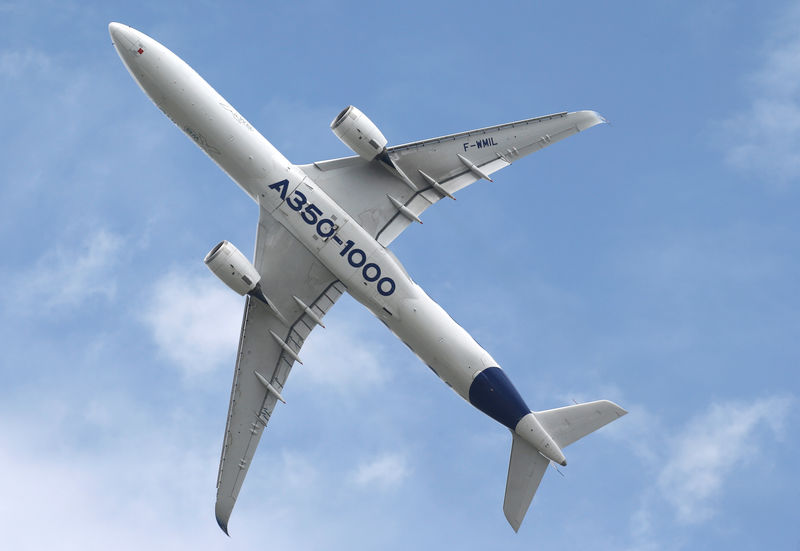DUBAI (Reuters) - Abu Dhabi's Etihad Airways is delaying the entry into service of five Airbus A350-1000 jets as it strives to return to profitability after three consecutive years of losses.
The state-owned carrier has been downsizing its fleet and route network following a failed strategy to rapidly expand to compete with more established Gulf airlines like Emirates.
"Etihad Airways will re-time the entry into service of five new Airbus A350-1000 aircraft as part of its ongoing business transformation plan," an airline spokesman said on Wednesday.
The spokesman said the largest version of the A350 jet remained important to Etihad's future plans, but did not say when the airline would start using it.
"A decision on introduction date will be made as part of the airline’s broader strategy planning," he said.
Airbus declined to comment, referring questions to Etihad.
Etihad has canceled billions of dollars in aircraft orders, including for 40 of the smaller A350-900 jets and two A350-1000s, as part of a five-year turnaround strategy started in 2016.
It has committed to taking delivery of five A350-1000s from a current order for 20.
Etihad replaced the management who led the aggressive expansion strategy, which also included investments in airlines that later ceased operations due to their own financial turbulence.

Chief Executive Tony Douglas, who joined in 2017, told Reuters last year the airline would be "more rational", focusing on carrying passengers to and from Abu Dhabi as opposed to its previous hub model of connecting east and west.